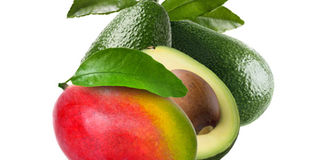Make snacking healthier

What you need to know:
- Dr Doreen Kagezi, a nutritionist, recommends snacking on nuts because they are high in protein which supports muscle growth and helps the body feel fuller for longer.
- You may think reduced fat means larger portions per serving, but unfortunately, that is not the case.
Nutritionists reveal that snacking properly is essential in managing one’s weight and balancing the diet. The more often you eat, the easier it will be to eat healthier foods such as fruits and vegetables in their right proportions. Dr Paul Kasenene, a nutritionist at Wellcare Uganda, says healthy snacks should be unrefined, unprocessed and fresh. He recommends making healthy snacking a lifestyle and encourages people to learn how to make their own snacks.
“A perfect snack should be low in calories and high in nutrients,” Dr Kasenene says. He recommends fresh fruits because not only do they contain sugar, but also contain lots of fibre, which slows down how quickly your body processes the sugar.
Some healthy choices
Bananas which are popular for their great taste, contain a great amount of vitamin B6, which is important for your nervous system and metabolism, have the lowest calories and are a great source of dietary fibre.
Mangoes have that unique flavour that is perfect for snacking on at any time. They contain a variety of healthy nutrients such as beta-carotene, Vitamin K and Vitamin A.
They say an apple a day keeps the doctor away because of the huge amount of vitamin and minerals it contains. Eating an apple, skin and flesh, gives you a whole bunch of the vitamins and minerals you need, with not that many calories and no fat or cholesterol.
Avocados
Avocados are high in healthy fats, which are good for the heart. They are also one of the best fruits for Vitamin K, an important nutrient for the blood. Dr Kasenene also recommends crunchy fresh vegetables such as sliced carrots and cucumbers.
Dr Doreen Kagezi, a nutritionist, recommends snacking on nuts because they are high in protein which supports muscle growth and helps the body feel fuller for longer. Nuts are rich in healthy fats that are essential to the body’s function. “Lightly roasted and salted ground nuts are great for our health, and help to keep hair and skin healthy. Cashew nuts are also a good source of magnesium and zinc. Cashew nuts help the bones, hair, and nerves remain healthy,” she says.
Grains
Dr Kagezi says grains such as popcorn make perfect snacks. Popcorn is high in fibre, antioxidants and low in calories compared to most snack foods. To make sure popcorn is as healthy as possible, it should be popped with as little oil as possible. Using oil to pop it can push the fat content up to around 28 per cent and microwaving it can produce 43 per cent fat content.
“Yoghurt is a good source of calcium and healthy bacteria that can help improve health of the digestive system. Plain yoghurt is the popular and healthy choice among dairy consumers because of it is thick, creamy, satisfying consistency, and it is usually lower in sugars, additives making it appear healthier than other yoghurts, she adds.
Snacks you think are healthy but are not
Reduced-fat peanut butter
You may think reduced fat means larger portions per serving, but unfortunately, that is not the case. When fat is removed from peanut butter, sugar is usually added to replace the flavour, and the calorie difference is negligible. More important, monounsaturated fat found in peanuts, such as in olive oil, is beneficial for your health, so there is no need to remove it from the snack.
Smoothies
All smoothies are not created equal. You are much better off eating a piece of fruit.




